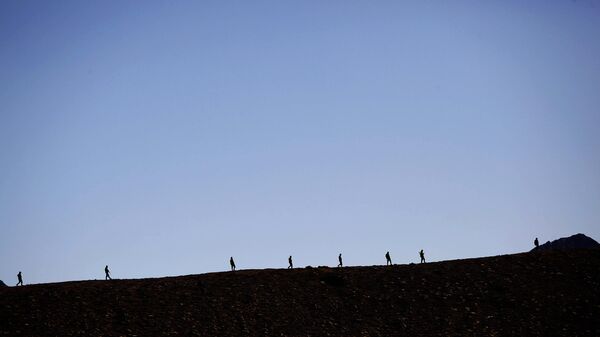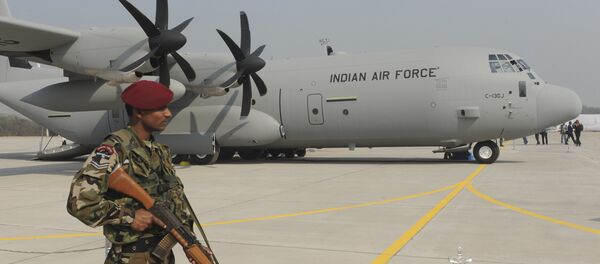New Delhi (Sputnik) — India’s defense ministry has given its approval for the civilian use of six advanced landing grounds (ALG) located in Arunachal Pradesh for this purpose. The decision has been taken in the backdrop of the Chinese threat against the visit of Tibetan spiritual leader the Dalai Lama and former US Ambassador to India Richard Verma to Arunachal Pradesh in the last few months.
“Defense Ministry had approved civilian use of these six airfields on March 30. The dual use of the ALGs would help Arunachal Pradesh in promoting tourism and other commercial activities and bring succor to the sick and needy who require urgent transportation," G. Mohan Kumar, India’s Defense Secretary, said.
The Indian Air Force has operationalized the upgraded ALGs of Ziro, Along, Mechuka, Walong, Passighat and Tuting. The ALGs have been upgraded with a full-fledged runway and associated facilities.
The confidence measures signed between India and China in 1993 and 1996, including the Border Defense Cooperation Agreement of 2013, are silent on defining the usage of airfields by civilian aircraft. These are elaborate as far as military paraphernalia including the deployment of forces is concerned.
“As such we have civilian helicopter services in place; therefore, civilian aircraft flying in these airfields will not change much of the situation. The intrusion clause also applies to the military aircraft or armed helicopter as both sides should refrain from flying them within 10 kilometers of the Line of Actual Control (LAC). However, unarmed transport aircraft, survey aircraft and helicopters are permitted to fly up to the LAC. Notwithstanding this, both sides are entitled to seek explanations as regards the implementation of these agreements,” Professor BR Deepak, trained in Chinese history and India-China relations at the Peking University and Jawaharlal Nehru University, New Delhi, said.
“I don't believe flying civilian aircraft would tantamount to being aggressive, extra military measures by the Indian side in terms of infrastructure development as well as the deployment will fall short of aggressiveness given the asymmetrical equations between the two. China certainly has pitched the escalation by giving names to certain places in the region in the wake of his Holiness the Dalai Lama's Tawang visit. It appears that they will escalate it further. However, neither China nor India will benefit from such things, which could rather deepen the existing distrust between the two,” Deepak said.




